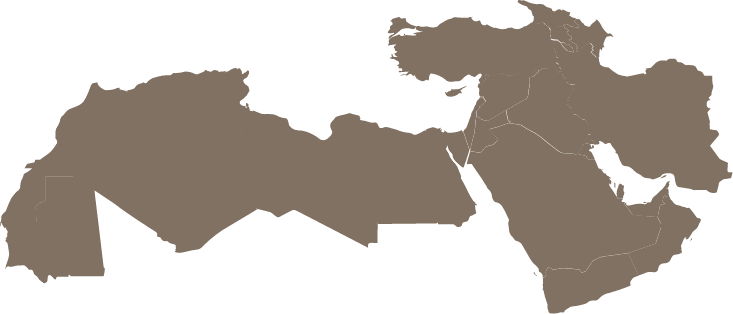Citizens of the Arab World often, if not always, exchange greetings with each other using the salutation Assalamu Aleikum which literally translates as: Peace be upon you. It is the phrase students use to greet their teachers, shop-keepers their customers and even news-anchors their viewers.It is this initiative of greeting an unseen caller, a close acquaintance or a complete stranger with peace that; through natural instincts; retaliates a mutual feeling of good-will and harmonious intentions on the other side.There is a popular saying in Arabic Culture that goes „Assalam Qabl Al-Kalam? meaning =Peace before Speech‘. It denotes that before any person; whether a public speaker, a customer or a visitor; starts addressing others, they should first begin by greeting them with peace prior to continuing the rest of the conversation be it a lecture, question or just a friendly chat. Similarly, as a consequence of applying this culture to present day technology, many Arab bloggers customarily begin their posts by greeting readers with peace.The Nomenclature of PeaceThe notion of peace is strongly displayed amongst people of Arab Culture. Many men and women of both Muslim and Christian faith have Salam (peace) as their first-name. In Islam, the Arabic male name Sulaiman (a variant of Hebrew Solomon which means Peace) is considered the name of an honourable prophet and a wise ruler. It is also rather common to come across several Muslim men whose name Abdul-Salam translates as Servant of Peace (Peace in this context is one of the attributes and names of God).
It is not only people who hold names of peace in Middle Eastern Culture but also places. Jerusalem is often referred to as Madinat Al-Salam (The City of Peace) and the Iraqi capital city of Baghdad was also once called the same.During earlier pages of history, Arabic as a language and culture has influenced a number of other languages including Spanish and Swahili. In fact, the Tanzanian city of Dar es Salaam derives its name from Arabic words for =Abode of Peace‘. This emphasis on the nomenclature of peace in Arabic is, in my opinion, rooted in an interesting notion of Arabian Culture stating that the named somehow receive a considerable share of their name.Peace in Arabic Music and PoetryThere are two main phrases that continue to appear excessively in Arabic songs. One is Ya Leil, Ya Ein (Oh night! Oh eyes!) and the other is Ya Salam (Oh, Peace!) – An exclamation which means how beautiful or how wonderful!
On the other hand, as Arabic poetry is the earliest form of Arabic literature which dates back to early centuries, peace has certainly been the theme of numerous poems and rhymes composed by Arab poets. In his poem; =The day of my birth‘; world-renown Lebanese-American poet Gibran Khalil Gibran expressed serenity in nature saying ?Peace to the morning whose rich light shines the Earth‘s darkness and Peace to the night whose darkness reveals the Sky‘s light"
However , the yearning for peace has also been tainted by the scars of reality. Here are some verses from a one entitled "Intonation for Peace‘ and addressed to children:?
"Spread your petals peacefully and say your prayers the way you like it,
In any religion you believe in. Just say it.
Say it on the unknown tombs,
the unknown tombs of millions of children,Who were dreaming like you,
dreaming of peace on our bleeding earth,In Vietnam, Bosnia, Lebanon, Iraq, Afghanistan, and Palestine
and... and… and …
Yet now, they are living in eternal peace!? – Poem authored by Ibaa Ismail
Peace in Islamic and Arabic Art
Calligraphy is a visible expression of the main and highest form of art in Arabic Culture. As it constitutes an artistic representation of spoken thoughts, Arab artists have often expressed the most essential and influential phrases and proverbs of the Arabic Language as well as verses from the Holy Qur‘an in the form of Calligraphy. Many Arab homes and offices accommodate decorative tiles or frames which depict an illustration of Salam, the Arabic word for Peace.
"I do not want my home to be walled on all sides and my windows to be stuffed. I want the cultures of all lands to be blown about my house as freely as possible."- Gandhi
">
